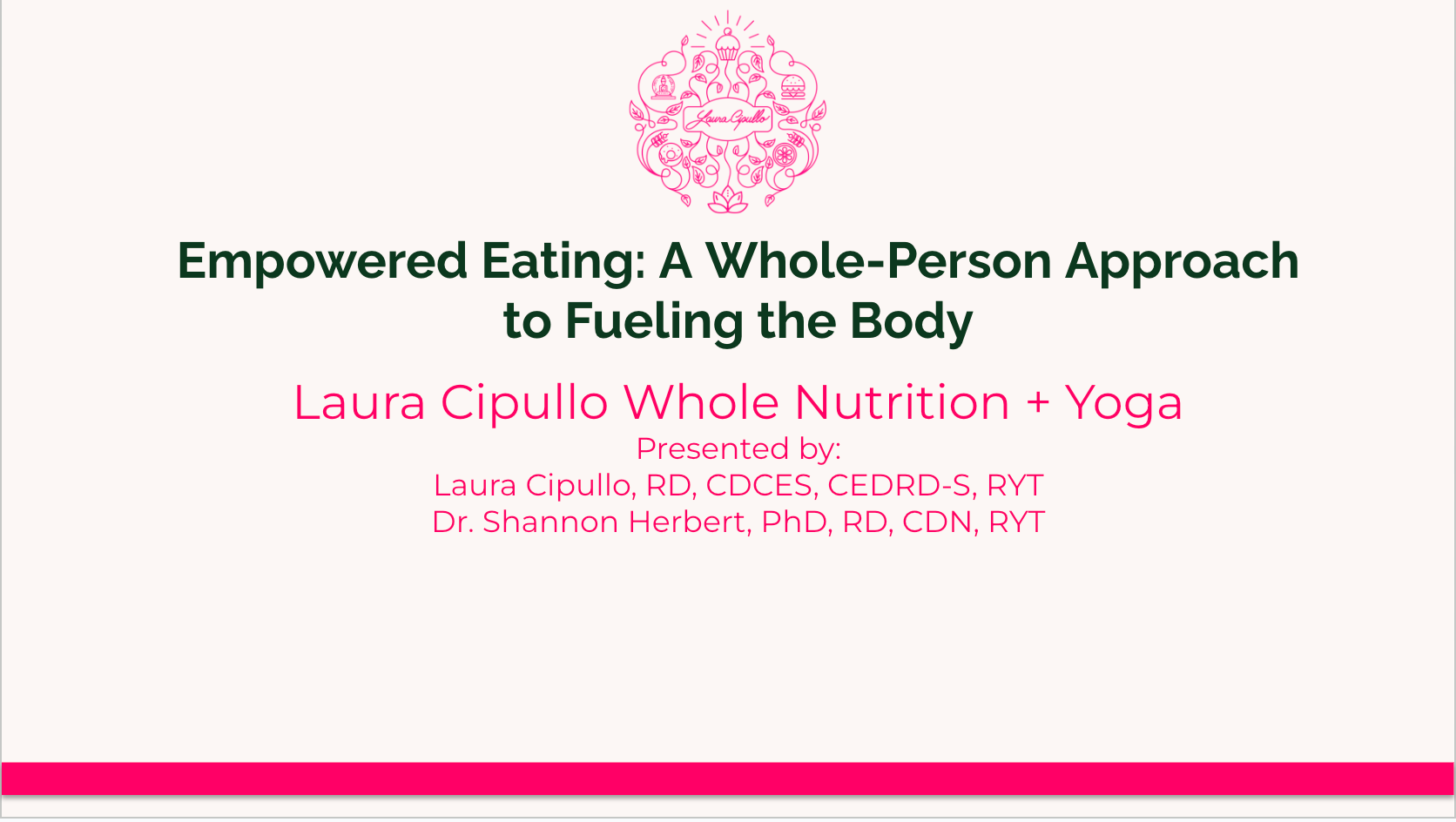Embrace Wholesome Living with the Five Pillars of Positive Nutrition

WOMENS’S HEALTH BODY CLOCK DIET, RODALE 2015
-
Adopt an “All Foods Fit” Philosophy
All foods provide nutrition but in different amounts based on nutrient composition and quantity consumed. Adopting this “everything is A-okay” attitude will automatically help you learn to eat all foods in moderation and prevent you from feeling deprived and restricted from eating foods that happen to have made some magazine’s “do not eat” list. Of course, All Foods Fit is not a green light to eat all foods, all the time, in any amount. That would be silly. Let me make the point this way: One meal or even one week without fresh vegetables will not affect your metabolism and body clock, but one week of restricting your calories or eating extra-large calzones and pints of Cherry Garcia certainly will.
The All Foods Fit philosophy is your escape from the dieting roller coaster. And it’s an awesome way to avoid the confusing information about food and diet that’s making your head spin. Food science is constantly contradicting itself. First we’re told to eat carbs, and then we’re told to avoid carbs at all costs. We were also told that fat was bad, but then we learned that fats such as olive oil, avocado, and other monounsaturated fats were needed for good health. I mean, of course we need fat in our diet. We especially need omega-3 fatty acids, since our bodies cannot make these essential fatty acids. That’s why they’re called “essential”! We learned too much vitamin A may cause cancer. Well, anything in excess can become unhealthy. Even attempting to be too thin or too healthy becomes harmful. So science is really telling us to be moderate: Eat lots of different foods in moderation and be mindful of the types of foods that keep you satiated and those that drive up your blood sugar. All Foods Fit means “no crazy restrictions on deliciousness” as long as you’re eating mindfully.
2. Use Neutral Food Language
Sorry, I don’t like the latest pop diet phrase: Eat clean. I understand the prescription to encourage folks to choose fresh foods over processed ones. But you see it’s that same ol’ good versus evil, eat this, not that approach to nutrition that can lead to body clock disruption. Think about it: What’s the opposite of a clean food? A dirty one? A McIntosh apple that slipped out of your hand into the mud? By adopting neutral food language, you eliminate the judgments that can fuel guilt and become a real Debbie Downer at a dinner party. So out with the food labeling. Ben and Jerry aren’t bad guys. Eating kale won’t get you into heaven, but if you eat too much, your skin may turn orange. I’ve heard people call carbohydrates the devil incarnate, yet apples, sweet potatoes, beans, and quinoa are carbs, and they’re pretty darn healthy to eat. Let’s make a deal: Foods aren’t good or bad. They’re just food.
3. Be an Honorable Eater
Often a client will visit me and say she had a bad day and feels guilty because she had some chips at lunchtime or Dunkin’ Munchkins with her coffee at a friend’s place. “I was bad today,” clients will often say, or “I ate an Oreo.” Or “Ugh, I ate through all my points before noon, so I just gave up and ate my way through the rest of the day. What a loser. I’ve got no discipline!”
Errrr. Do you hear me slamming on your brakes? Stop what you’re doing! Change your focus from counting calories, using points, or using a body scale as a way to determine your worth as a human being. Instead let the thought of “valuing and honoring your body” help you establish healthy eating habits. It may sound something like this: “Today I listened to my body—I ate when I was hungry and stopped when I was full. I ate a kale-tofu salad for lunch and had cookies with milk for a side. What a great day!”
4. Don’t Treat Yourself Like a Dog
Say it with me: Dogs get treats, humans eat snacks. That’s right—going forward, I want you to stop thinking of tasty tidbits of food as a reward or treat for “good” behavior. Food is food. It is eaten for fuel and other reasons, but we don’t place certain food types on a pedestal to be worshiped as special and craved. This mentality is likely to cause you to overeat this “treat” and wreak havoc on your body clock. Instead treat yourself to vacations, flowers, and new lipsticks as rewards for your accomplishments. But keep food out of it.
5. Love Fat; It’s Not Your Foe
Whether it’s fat on your body or in your food, stop judging it. It’s not bad or ugly or evil. In either place, food or body, it’s natural, healthy, and needed. Fat in your food is an essential macronutrient. You can have fat on your body and be beautiful. Whatever names you were called as a child, whatever comments people make about your body, just know we all are imperfect in our own ways. The Body Clock Diet is about balance with your biological systems. If you’re trying to attain the perfection you see in the Photoshopped pictures of models in magazines, you will set yourself up for a broken body clock. So let’s neutralize the negativity surrounding the word fat to help our society redefine beauty and overall health. You can be healthy with fat on your body. You can also be unhealthy with fat on your body. Don’t judge a book just by its cover.







